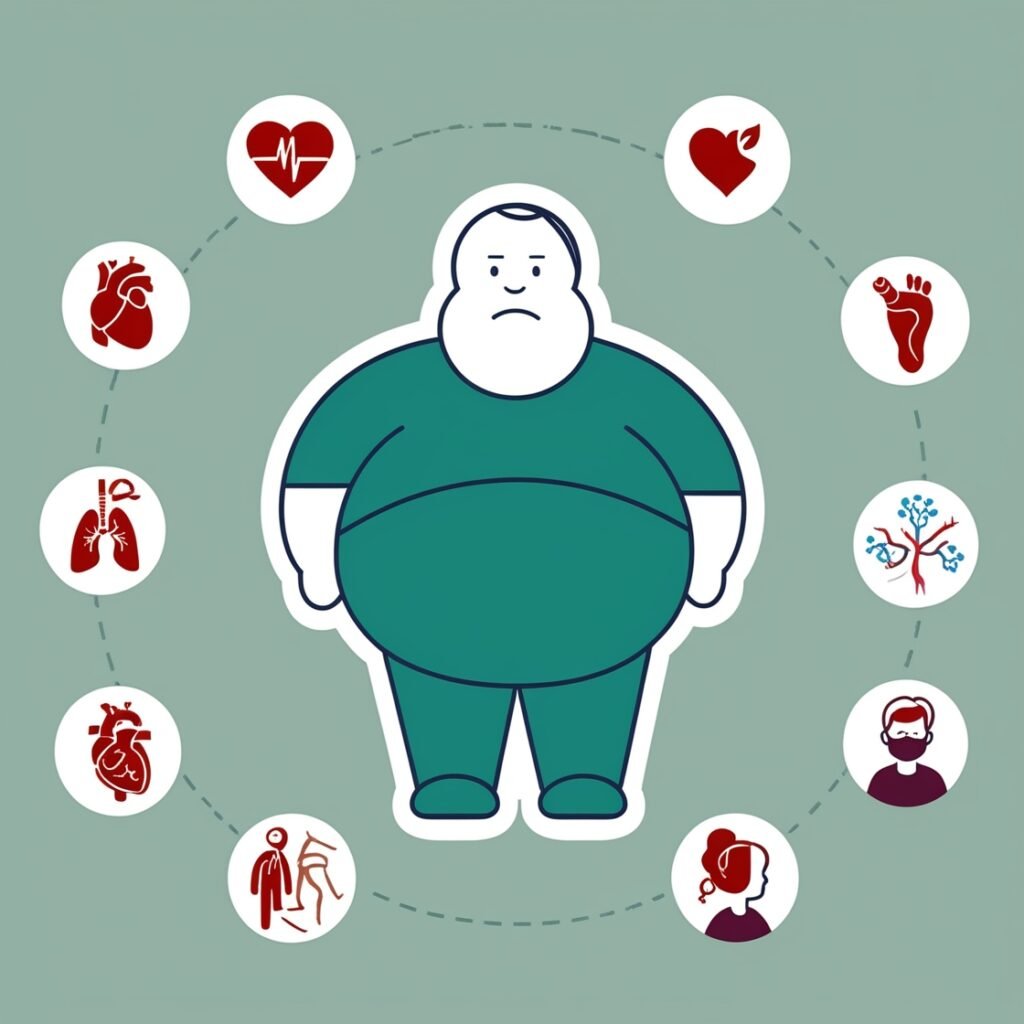Obesity is a complex and multifaceted health condition that affects millions worldwide. It’s not just about excess weight—it can lead to serious physical, mental, and emotional consequences. While diet and exercise are the most well-known treatment options, behavioral therapy for obesity has emerged as an essential approach to address the psychological aspects of the condition. This article will explore how behavioral therapy can help manage and treat obesity, highlighting its importance, techniques, and effectiveness.
Table of Contents
Introduction to Behavioral Therapy for Obesity

Behavioral therapy is a type of psychotherapy that focuses on changing unhealthy behaviors and habits. When it comes to obesity, it aims to help individuals develop healthier eating patterns, increase physical activity, and cope with emotional triggers that lead to overeating. By identifying the psychological factors contributing to weight gain, individuals can better manage their condition and achieve long-term success in weight loss.
Main Benefits of Behavioral Therapy for Obesity:
- Helps build self-awareness of eating habits
- Provides tools to overcome emotional eating and stress-related overeating
- Supports long-term lifestyle changes for sustainable weight loss
Statistics on Obesity and Behavioral Therapy
According to the World Health Organization (WHO), over 1.9 billion adults were overweight in 2016, with 650 million classified as obese. The rise in obesity rates has prompted researchers to seek more comprehensive treatment methods. Studies have shown that combining behavioral therapy with diet and exercise significantly improves weight loss outcomes.
- A 2018 study published in The Journal of the American Medical Association (JAMA) revealed that individuals who underwent behavioral therapy lost 5–10% more weight than those relying solely on diet and exercise.
- Another 2020 study reported that 60–70% of participants in behavioral therapy programs maintained weight loss after one year.
Understanding Behavioral Therapy for Obesity
1. Identifying Emotional Triggers
Emotional triggers are one of the primary reasons people overeat. Stress, boredom, loneliness, and depression can all lead to emotional eating, which is characterized by consuming food in response to feelings rather than hunger. Behavioral therapy helps individuals become aware of these triggers and develop healthier coping mechanisms.
Example of Emotional Triggers:
- Stress at work leads to late-night snacking
- Feeling lonely and turning to comfort foods like sweets or junk food
- Boredom causing mindless eating in front of the TV
2. Building Healthier Habits

Behavioral therapy teaches patients to replace negative habits with positive ones. This could involve learning to plan meals ahead of time, practicing portion control, or being mindful during meals to avoid overeating. Setting small, manageable goals is key to success, as sudden, drastic changes are harder to maintain long-term.
Behavioral Strategies to Build Healthy Habits:
| Habit | Replacement |
|---|---|
| Late-night snacking | Drinking herbal tea or going for a walk |
| Skipping breakfast | Preparing quick, healthy breakfasts like smoothies or oatmeal |
| Overeating at meals | Practicing mindful eating and using smaller plates |
3. Self-Monitoring and Accountability
Self-monitoring is a core component of behavioral therapy. This involves keeping track of food intake, physical activity, emotions, and even weight to gain insights into patterns of behavior. Many individuals find success through food journals or mobile apps that log their daily habits.
Self-monitoring also fosters accountability. By tracking progress, individuals can identify areas where they may be slipping and take corrective action. Regular check-ins with a therapist or support group can further enhance accountability and help sustain motivation.
Self-Monitoring Tools for Weight Loss:
- Mobile apps like MyFitnessPal for tracking food and exercise
- Food journals for writing down daily meals and snacks
- Fitness trackers for logging physical activity and daily steps
4. Goal Setting and Motivation
Another crucial aspect of behavioral therapy is goal setting. Goals should be realistic and achievable, such as losing a specific amount of weight in a certain period or reducing the number of unhealthy snacks consumed each week. Short-term goals provide immediate motivation, while long-term goals keep individuals on track for sustained weight loss.
Behavioral therapists work with patients to set SMART goals (Specific, Measurable, Achievable, Relevant, and Time-bound), ensuring that each goal is clear and attainable.
Example of SMART Goals for Weight Loss:
| Goal | Example |
|---|---|
| Specific | “I want to lose 10 pounds in 3 months.” |
| Measurable | “I will track my weight loss every week” |
| Achievable | “I will reduce portion sizes and exercise 3 times a week” |
| Relevant | “Losing weight will improve my health” |
| Time-bound | “I will achieve this goal by the end of June” |
Techniques Used in Behavioral Therapy for Obesity
1. Cognitive-Behavioral Therapy (CBT)
Cognitive-Behavioral Therapy (CBT) is the most widely used form of behavioral therapy for obesity. CBT addresses the negative thought patterns that often lead to overeating or poor self-care. It focuses on reframing negative self-perceptions and developing more constructive thinking patterns that promote healthier behaviors.
CBT for Obesity Includes:
- Identifying and challenging negative thoughts (e.g., “I’ll never lose weight”)
- Replacing self-defeating beliefs with more empowering ones
- Building problem-solving skills to cope with challenges like cravings or emotional eating
2. Motivational Interviewing (MI)
Motivational Interviewing (MI) is another key component of behavioral therapy for obesity. It is a collaborative approach that helps individuals explore their readiness to change and resolve any ambivalence about weight loss. MI encourages patients to take ownership of their goals and empowers them to find their motivation.
3. Stress Management and Relaxation Techniques
Many people overeat in response to stress. Behavioral therapy helps individuals learn stress management techniques to prevent emotional eating. Mindfulness meditation, deep breathing exercises, and yoga are commonly used relaxation techniques that help people gain control over stress.
Stress Management Techniques:
- Mindfulness Meditation: Helps people stay present and aware of their emotional triggers
- Breathing Exercises: Reduces immediate stress and anxiety, preventing impulsive eating
- Progressive Muscle Relaxation: A technique where individuals systematically tense and relax muscles to reduce stress
4. Social Support
Social support plays a significant role in behavioral therapy for obesity. Support from family, friends, or support groups can improve motivation and accountability. Behavioral therapists often encourage patients to involve their loved ones in the weight loss process, whether by sharing meals or exercising together.

Effectiveness of Behavioral Therapy for Obesity
Behavioral therapy has proven to be an effective treatment for obesity, particularly when combined with diet and exercise interventions. Research has shown that patients who participate in behavioral therapy for weight loss experience significant improvements in their eating habits, activity levels, and overall well-being.
Success Rates:
- A 2019 study published in Obesity Reviews found that patients who received behavioral therapy lost an average of 5-10% of their body weight within 6 months to 1 year.
- Another study published in The Lancet revealed that participants in behavioral therapy programs maintained weight loss more effectively than those who only focused on diet and exercise.
Table: Average Weight Loss with Behavioral Therapy (in pounds)
| Duration | Behavioral Therapy | Diet & Exercise Only |
|---|---|---|
| 6 Months | 12-15 lbs | 5-8 lbs |
| 1 Year | 18-22 lbs | 10-12 lbs |
Conclusion
Behavioral therapy for obesity is a crucial part of any comprehensive weight loss strategy. By addressing the emotional, psychological, and behavioral aspects of overeating, individuals can develop healthier habits and make sustainable lifestyle changes. Whether through cognitive-behavioral therapy, self-monitoring, or stress management techniques, behavioral therapy provides the tools and support needed for long-term success in managing obesity.
While behavioral therapy works best when combined with diet and exercise, it offers a unique and essential focus on the mental and emotional factors behind obesity. If you’re struggling with weight loss, consider seeking behavioral therapy to address the root causes of your behavior and make meaningful changes that last a lifetime.
References
- World Health Organization. (2020). Obesity and Overweight.
- JAMA. (2018). Effect of Behavioral Therapy on Weight Loss Outcomes.
- Obesity Reviews. (2019). Behavioral Therapy and Weight Loss Success.
- The Lancet. (2020). Long-term Effects of Behavioral Therapy on Weight Loss.




